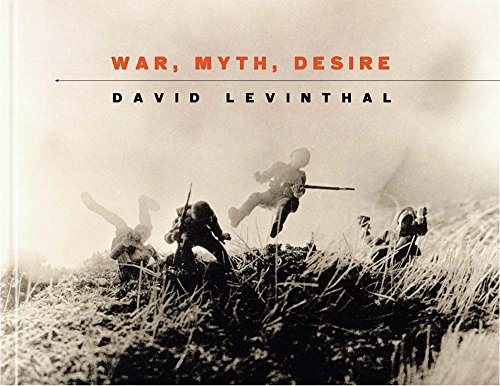David Lawrence Levinthal was born March 8, 1949 and is an American photographer. He uses small toys and props with dramatic lighting to construct miniature environments for subject matters varying from war scenes to voyeurism to racial and political references to American pop culture.
Levinthal’s major series include Hitler Moves East (1972-1975), Modern Romance (1983-1985), Wild West (1986-1989), Desire (1991-1992), Blackface (1995-1998), Barbie (1997-1998), Baseball (1998-2004), and History (2010-2018).
Table of Contents
- 1 Biography
- 1.1 David Levinthal: War, Myth, Desire: Boxed Set
- 1.2 History
- 1.3 David Levinthal: War, Myth, Desire
- 1.4 Blackface
- 1.5 David Levinthal: Work From 1975-1996
- 1.6 Hitler Moves East: A Graphic Chronicle, 1941-43
- 1.7 David Levinthal: Modern Romance
- 1.8 Who Pushed Humpty Dumpty?: And Other Notorious Nursery Tale Mysteries
- 1.9 Barbie Millicent Roberts: An Original
- 1.10 War Games
Biography
Levinthal was born in 1949 in San Francisco, California. He received a Scientiae Magister in Management Science from the MIT Sloan School of Management (1981), an MFA in Photography from Yale University (1973), and a BA in Studio Art from Stanford University (1970). He was the recipient of a Guggenheim Fellowship from the John Simon Guggenheim Memorial Foundation in 1995 and a fellowship from the National Endowment for the Arts in 1990-1991.
He has had retrospective exhibitions of his work at the International Center of Photography and the George Eastman Museum.
Levinthal’s diverse work is a result of primarily large-format Polaroid photographs. His work touches on many aspects of American culture from Barbie to baseball and X-rated dolls. Levinthal’s major series include Hitler Moves East (1972-1975), Modern Romance (1983-1985), Wild West (1986-1989), Desire (1991-1992), Blackface (1995-1998), Barbie (1997-1998), Baseball (1998-2004), and History (2010-2018).
His politically charged series, Blackface, consists of close-ups of black memorabilia, household objects infused with African-American stereotypes, and caused such a controversy that the Institute of Contemporary Art of Philadelphia was forced to cancel the exhibition while still in its early planning stages.
Levinthal stated that toys are “intriguing” and that he wants to discover what he can do with them. They are one way society socializes its children on a deeper level. Furthermore, Levinthal is aware of the power of toys: “Ever since I began working with toys, I have been intrigued with the idea that these seemingly benign objects could take on such incredible power and personality simply by the way they were photographed. I began to realize that by carefully selecting the depth of field and making it narrow, I could create a sense of movement and reality that was in fact not there.
Last update 2021-08-06










